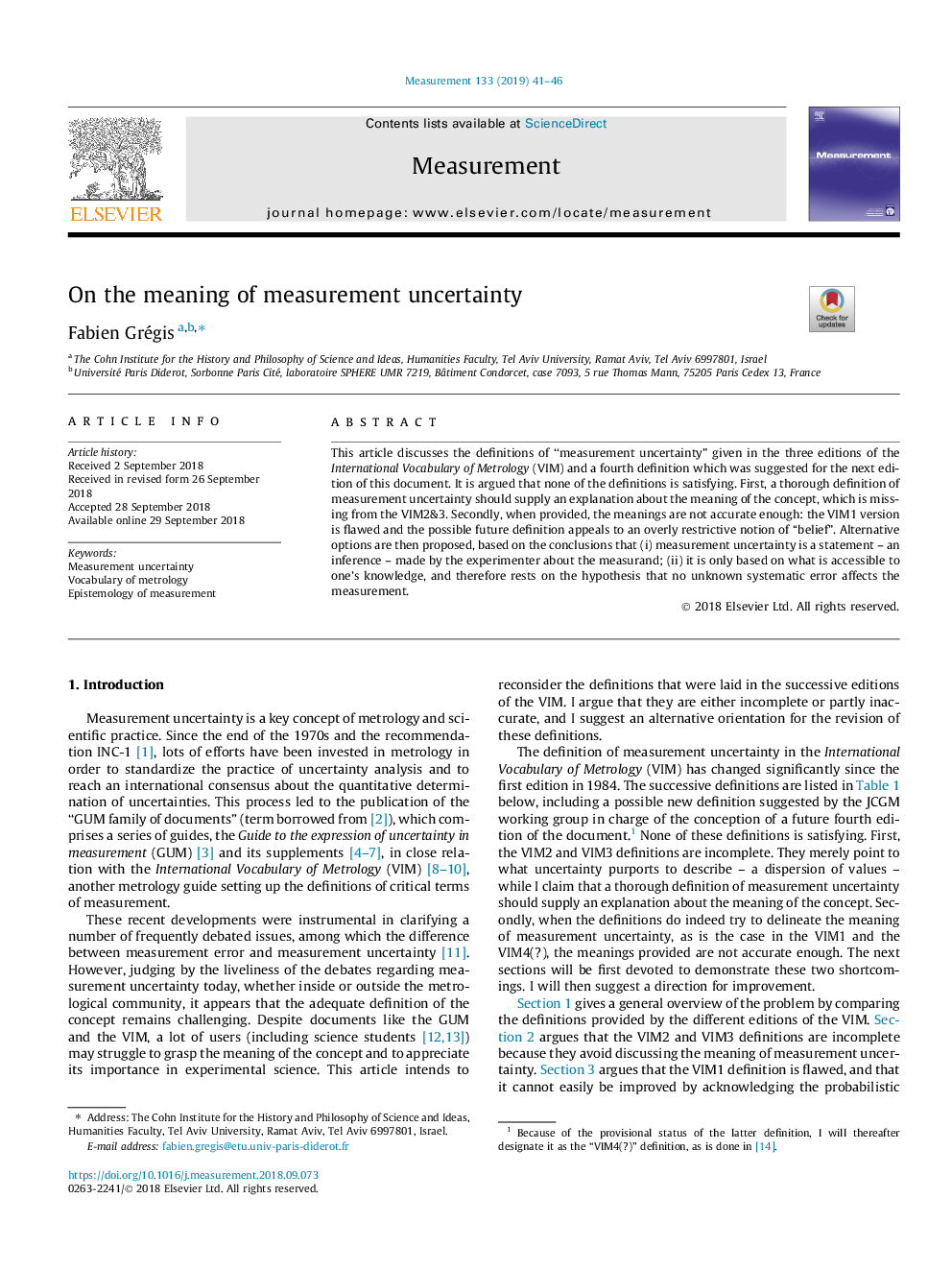| Article ID | Journal | Published Year | Pages | File Type |
|---|---|---|---|---|
| 11012188 | Measurement | 2019 | 6 Pages |
Abstract
This article discusses the definitions of “measurement uncertainty” given in the three editions of the International Vocabulary of Metrology (VIM) and a fourth definition which was suggested for the next edition of this document. It is argued that none of the definitions is satisfying. First, a thorough definition of measurement uncertainty should supply an explanation about the meaning of the concept, which is missing from the VIM2&3. Secondly, when provided, the meanings are not accurate enough: the VIM1 version is flawed and the possible future definition appeals to an overly restrictive notion of “belief”. Alternative options are then proposed, based on the conclusions that (i) measurement uncertainty is a statement - an inference - made by the experimenter about the measurand; (ii) it is only based on what is accessible to one's knowledge, and therefore rests on the hypothesis that no unknown systematic error affects the measurement.
Keywords
Related Topics
Physical Sciences and Engineering
Engineering
Control and Systems Engineering
Authors
Fabien Grégis,
